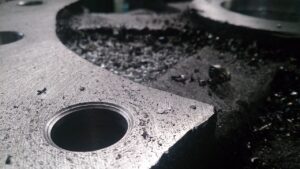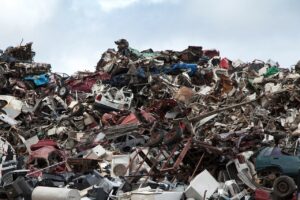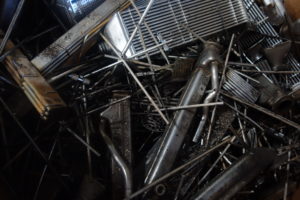At Consolidated Resources, Inc., we believe that the more knowledge our current customers and future customers have regarding the materials that they recycle the better. Much of the recycling problems that we are experiencing today stem from a population that is unaware of the importance, both environmentally and monetary, of recycling. So, to start the spread of knowledge here is some information regarding titanium.
If you are somewhat familiar with the periodic table of elements, you may, in fact, know that titanium has an atomic number of 22 and goes by the symbol Ti. However, there is probably a great deal of information you do not know about titanium, its properties, its uses, why it is important to recycle.
Here are some pretty interesting facts regarding titanium to add to your wealth of knowledge and maybe win that bonus round at trivia night in the future:
- Titanium was discovered in 1791 in Cornwall, Great Britain. William Gregor is credited with the discovery while Martin Heinrich Klaproth named it after the Greek mythology icons, the Titans.
- Titans mean “first sons of Earth” in Latin.
- Almost all living things, bodies of water, rocks, and soils contain titanium. Typically, the element is found within a number of mineral deposits like rutile and ilmenite, both of which are readily found throughout the Earth’s crust. It is the 9th most abundant element in the Earth’s crust, to be specific.
- Titanium is only found in compounds and does not exist in its pure state in nature.
- Titanium dioxide is a popular photocatalyst and often used to color white pigments
- Titanium tetrachloride is used in smoke screens and other catalysts
- Titanium trichloride is used as a catalyst in the production of polypropylene

- Iron, aluminum, vanadium and molybdenum are all common materials that titanium can be alloyed with as well as other elements.
- Titanium is used to produce strong, lightweight alloys for a variety of industries including:
- Aerospace
- Military
- Industrial processes
- Automotive
- Agriculture and food
- Medical devices and instruments
- Sporting goods
- Jewelry
- Mobile phones
- Corrosion resistance is perhaps the most desirable feature of titanium, along with its extremely high strength-to-density ratio (highest of any metallic element). Because of its strength and weight, it is extremely important to the aerospace, military and medical industries.
- Boeing’s 737 Dreamliner is made of 15 percent titanium.
- While 60% more dense than aluminum, titanium is more than twice as strong. Its strength is on the same level as steel but weighs in 45% lighter.
- Titanium can be used for the long-term storage of nuclear waste because of its ability to resist corrosion. Containers made out of titanium may be able to last up to 100,000 years.
- Spoiler Alert: some 24k gold isn’t pure gold but instead, an alloy of 1% titanium. While not enough titanium is added to change the karat of the gold but does make it much more durable than pure gold.
- Categorized as a transition metal, titanium has some properties (like strength and melting point) that are similar to other metals but is a poor conductor of heat or electricity, not very dense and is non-magnetic.
At Consolidated Resources, Inc., we strive to provide the very best industrial recycling solutions to Arizona businesses. So, whether your business has large quantities of scrap metals or plastics that need to be recycled rather than discarded, give us a call at (623)931-5009 or click here to learn about the services we offer.






